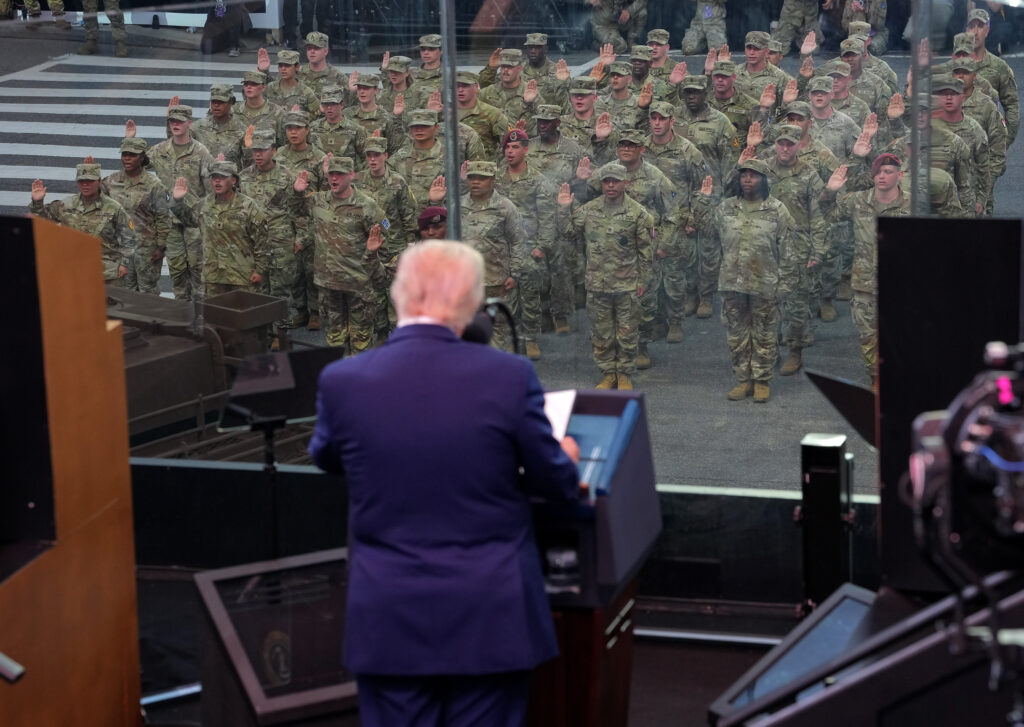President Trump has accused some Democrats of “SEDITIOUS BEHAVIOR” after a group of lawmakers posted a video on X urging members of the military and intelligence community to disobey any orders they perceive to be illegal.
The video, organized by Sen. Elissa Slotkin (Michigan), a former CIA analyst, features her and other lawmakers who are veterans saying “threats to our Constitution aren’t just coming from abroad, but from right here at home.” They add: “Our laws are clear. You can refuse illegal orders.”
It was not immediately clear which orders concerned the lawmakers, but the video comes as the Trump administration has directed military strikes against alleged drug-trafficking boats in the Caribbean and Pacific, threatened military action in Venezuela, and deployed the National Guard into U.S. cities — actions which have sparked legal challenges and concerns.
It has raised the question of what rules military members have to follow. Here’s what to know:
The facts
- Members of the military take an oath to the Constitution, not the president. They swear an oath of enlistment to “support and defend the Constitution of the United States against all enemies” and “obey the orders of the President of the United States and the orders of the officers appointed over me.” Military officers all swear a similar oath.
- The oath is also clear that they should be obeying orders “according to regulations and the Uniform Code of Military Justice.” The UCMJ makes clear that service members are required to obey “any lawful general order or regulation,” or they could be “punished as a court-martial may direct.”
- The Manual for Courts-Martial states that the requirement to “obey orders does not apply to a patently illegal order, such as one that directs the commission of a crime.”
What is the Uniform Code of Military Justice?
The UMCJ was enacted in 1950 and applies to all branches of the U.S. military including the Coast Guard, Marines, Navy, Air Force, Army and Space Force.
Article 92 states that any person who fails to obey “any lawful general order or regulation” would be subject to punishment by court-martial procedures, which are carried out under the U.S. military justice system.
The manual for courts-martial states that an order is deemed lawful unless it “is contrary to the Constitution, the laws of the United States, or lawful superior orders or for some other reason is beyond the authority of the official issuing it.”
Furthermore, the manual also states that service members can be punished for following orders they know to be unlawful or “a person of ordinary sense and understanding would have known it to be unlawful.”
However, while service members are obligated not to follow manifestly unlawful orders, such situations are considered rare and legally fraught, The Post reported.
What about international law?
The manual for courts-martial says the sources of military jurisdiction include the Constitution and international law.
International humanitarian law states that individuals are responsible for any war crimes they commit, and every combatant has a duty to “disobey a manifestly unlawful order.”
“In finding that superior orders, if manifestly unlawful, cannot be a defence, several courts based their judgements on the fact that such orders must be disobeyed,” according to the database of the International Red Cross.
The post Does the military have to follow unlawful orders? What the oath says. appeared first on Washington Post.




